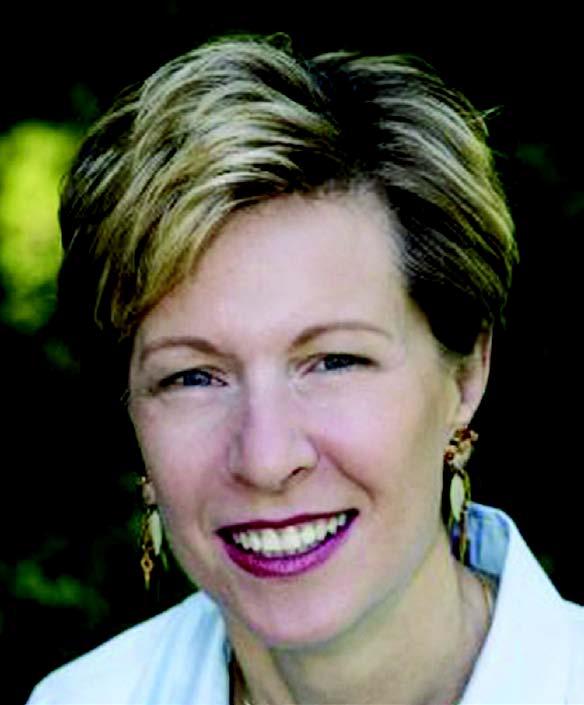SECRETARY OF STATE WILLIAM FRANCIS GALVIN, Democrat for re-election from Boston “In his inaugural address on January 1, 1995, Secretary of the Commonwealth William Francis Galvin pledged to “seek to open as wide as possible to mean- ingful participation by citizens the processes that affect our daily lives.” From elections to business transactions, from warning and protecting investors to registering record numbers of voters, Secretary Galvin has constantly renewed that pledge.” www.billgalvin.org WILLIAM C. CAMPBELL, Republican from Woburn “It would cost about $1,000,000.00 for each election day to implement Election Day Registration. There would be no way to detect if a voter intent on making mischief registered and voted twice – until after election day. Too many elec- tions turn on a handful of votes. We should never adopt a law that opens the door to potential election fraud.” http://www.billcampbell2010.com JAMES D. HENDERSON, Unenrolled from Stow “Advocating for greater access to the ballot box, through extended (multi-day) balloting (known as “early voting”), no-fault absentee ballots (or mail-in vot- ing) and election day registration, and by making sure that all voters, including people serving in the military and citizens who speak other languages, have a fair and equal chance to cast their ballot. http://jimforsoc.com/ ATTORNEY GENERAL MARTHA COAKLEY, Democratic canditate for re-election from Medford “Martha has led the fight in rooting out fraud and corruption and recovering money back for taxpayers. Overall, she has saved or recovered $5 for taxpayers for every $1 in the Attorney General’s budget.” marthacoakley.com JAMES P. MCKENNA, Republican from Millbury “ObamaCare” is unconstitutional. I will do everything in my power to prevent the enactment of this healthcare plan here in the Commonwealth.” http://jimforag.com COUNCILLOR – FOURTH DISTRICT CHRISTOPHER A. IANNELLA, JR., Democratfor re-election from Boston “One of eight council members whose duties include confirming Judicial a pointments and approving pardons and commutations in the Commonwealth of Massachusetts every Judge in the Commonwealth of Massachusetts” www.iannellamummolo.com JACQUOLYN PAYNE-THOMPSON, Independent from Boston “- Open Door Policy enforced. – Tougher sentences on repeat offenders. – Transparency in government is a must. – Inmate Re-entry Programs for juvenille offenders” paynethompson2010.wordpress.com REP IN CONGRESS, 9TH DISTRICT STEPHEN F. LYNCH, Democrat candidate fro re-election from Boston “Today, too many hard-working Americans are living paycheck to paycheck, struggling to make ends meet, going deeper into debt and worrying that the American Dream is further and further out of reach. Stephen Lynch believes we can solve these problems.” http://www.stephenlynchforcongress.com VERNON M. HARRISON, Republican from Braintree Tax breaks for those who live life styles that reduce the need for health care coverage. Preventative care is almost always less expensive and effective than treating health care problems after the fact. http://www.voteforvernon.com PHILIP DUNKELBARGER, Independent from Westwood “The existing system, involving private insurance companies, is the most expensive in the world, delivering a marginal level of care, to which many have no access. We do have publically financed (single-payer) care for certain groups (seniors, vets, some children) which works well, and with which pa- tients and care providers are well satisfied. All we need do is extend the same care to everyone. It’s Simple.” http://www.dunk2010.com AUDITOR SUZANNE M. BUMP Democrat from Great Barrington “Every investment the Common- wealth makes – whether it is a line item in the state’s budget or a tax credit or other incentive – must be measured by the benefit to Mas- sachusetts citizens and taxpayers, particularly in these challenging fiscal times.” MARY Z. CONNAUGHTON Republican from Framingham “We need to control state spending, which is at unsustainable levels and burdening the hardworking people of our state. As your State Auditor, I will dissect spending at all levels to root out waste, fraud and corruption and report back to you so you know how your money is being spent. ” http://www.maryforauditor.com NATHANAEL A. FORTUNE Green-Rainbow from Whately At the same time, our government has been lowering the corporate income tax and unearned income tax and raising regressive sales taxes, excise taxes, property taxes and fees. There seems to be no end of new ways to try and get money from peo- ple who don’t have it, while granting new breaks to those who do. http://www.natfortune.org TREASURER STEVEN GROSSMAN Democrat from Newton He has three priorities he will pursue as Treasurer: Protecting the public’s money – your money – through sound money management and investment practices; helping create jobs by leveraging the Treasurer’s influence over the banks and by making prudent investments of Massachusetts pension funds in Massachusetts companies; being a champion for small businesses by helping them secure the capital they need to grow and create jobs and by helping relieve their crushing health insurance premiums. http://www.stevegrossman.com KARYN E. POLITO Republican from Shrewsbury “Karyn believes that the only true way to achieve job creation and eco- nomic growth is through long-term policies that reduce our state’s tax burden on individuals and busi- nesses, encourage new enterprises (such as expanded gaming) and fos- ter a climate where banks don’t feel threatened to issue risky loans such as during the housing bubble.” www.karynpolitofortreasurer.com Interview with Suzanne Bump Democratic candidate for Auditor discusses her platform MM: Could you tell me about your back- ground before you entered public service? SB: I went to college. Right out of college I went to the State House to be a legislative aide. I spent six years as aide to the State Representative from Braintree. When she retired I ran for her seat and won. I was a state representative for eight years, un- til I lost re-election in 1993. I had spent those years studying law at night, so af- ter that I worked as a lawyer in different ways: I worked for non-profits and small businesses, started my own firm, started a non-profit that provides alcohol and drug recovery services to women… I joined De- val Patrick’s administration as Secretary of Labor and Workforce Development. MM: What do you feel could work better in government? SB: I feel the accountability of state gov- ernment is not where it should be. There needs to be greater emphasis on efficient delivery of services. Many problems lie in how government is structured. Legis- lators look at achieving policy goals; they don’t necessarily think about government bureaucracy and how well agencies need to collaborate. They are very good at cre- ating separate agencies that are walled-off from others. That can lead to duplication of effort, or result in a legal inability for agencies to coordinate. As auditor, I want to look not just at the financial account- ability of agencies but at their account- ability in terms of results and to determine what are the obstacles to getting better results. MM: What would your agenda be should you take office? SB: I have three motivating beliefs. One, the general public needs to appreciate that there is someone in state government looking out for their interests. Two, they should be able to believe that a dollar they give to state government will be a dollar well-spent by government. Third, wheth- er you are a taxpayer or not, anybody who relies on a government service shouldn’t fear that the service will be compromised because a bureaucracy will fail them or a contractor will rip off the system. For example, we have several separate bureaucracies that are all providing a piece of the healthcare puzzle: we have Medicaid, the Medical Security program, the Massachusetts Healthcare Connector, the Health Safety Net… we have all of these separate bureaucracies that don’t interact with one another. It’s a system that has tremendous administrative costs, many unnecessary. It provides tremendous ob- stacles to people trying to comply with the law and get health insurance. This [is] a system that needs to be streamlined and put back on track. One small example: as Labor secretary, I managed six agencies, it started out as eight; I consolidated some. We saved mil- lions of dollars simply by moving from is- suing unemployment checks to direct de- posit. Millions more will be saved when we move to debit cards. Using technology to make it more convenient for the recipi- ents of unemployment and saving money at the same time… that’s an example of where there’s waste. What you need to know about the ballot questions before you vote next Tuesday By Jacob Sommer Ballot Question #1 seeks to roll back the relatively recent sales tax (6.25%) on al- coholic beverages. Voting Yes would end this tax, while No would keep it in force. Both Republican Charlie Baker and In- dependent Tim Cahill are in favor of this ballot measure, each campaign citing the sales tax on top of excise taxes as double taxation as well as a burden to establish- ments selling alcohol near the New Hamp- shire border. Both Governor Patrick and Green-Rainbow candidate Jill Stein are opposed, Dr. Stein saying that while the tax is regressive, it would be wrong to do so while the state is facing a budget short- fall. Ballot Question #2 seeks to remove sec- tion 40B in state law. Normally, when building a new structure or making modi- fications to an existing one, permits need to be gotten, or ‘pulled’, from the city or town to get permission for the project. If your project needs several permits, you might need a different permit from each department. For a large project, such as a new development, this can mean sev- eral permits per structure. Section 40B allows developers to get faster permits when building a complex or development if there is at least one low-to-moderate in- come unit for every three full-price units. Specifically, they only need to go to one board and get a single permit for the entire project. The author of the questions has stated that while the law is putatively supposed to help create more affordable housing, Massachusetts has lagged behind other states in actually building such spaces. At the same time, he says, allowing for one comprehensive permit from a centralized body has allowed for dense sprawls that have been bad for the character of towns around the state. A Yes vote would strike this faster permitting process from the law. All four gubernatorial candidates are opposed to the measure, though for vary- ing reasons. Canidates Patrick, Baker and Cahill feel this measure is the best way to build more affordable housing in the state, while Jill Stein has said that while 40B is flawed, completely removing it with- out having something ready to replace it would not be effective. Ballot Question #3 seeks to lower the state sales tax from its current level (6.25%) to 3%. A Yes vote would reduce the tax rate. The author of the measure, 2002 Libertarian gubernatorial candidate Carla Howell, says the state economy took a drastic hit when the sales tax was increased to the current level. As with Ballot Question #2, all four gubernato- rial candidates oppose this measure. Tim Cahill, who broke from the Democratic Party in large part because of Governor Patrick’s increase of the sales tax, does want to see the tax brought back to 5% but feels 3% would be too low. Among other objectives, the sales tax helps fund higher education in Massachusetts. If this measure passes it would seriously impair the state’s ability to fund the University of Massachusetts, leading to higher tuition and fees and reducing enrollment. UMass Boston political science professor Thomas Ferguson said, wryly, “If you want Massa- chusetts to look like Mississippi, this is the bill you want to vote for.” Visit http://www.sec.state.ma.us/ele/ ele10/ballot_questions_10/quest_1.htm to read the full text of all three ballot ques- tions, as well as brief arguments for and against each measure.
DO you really think this needs a caption?






















































